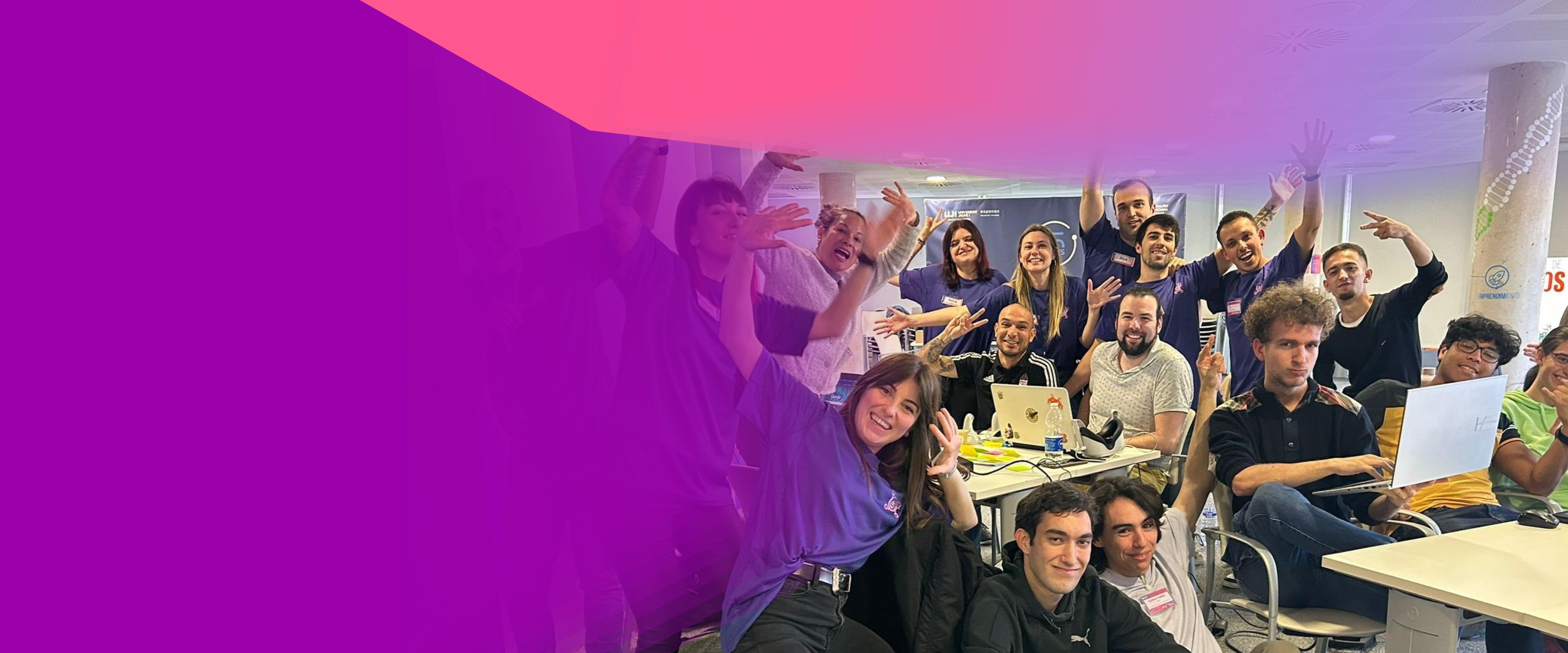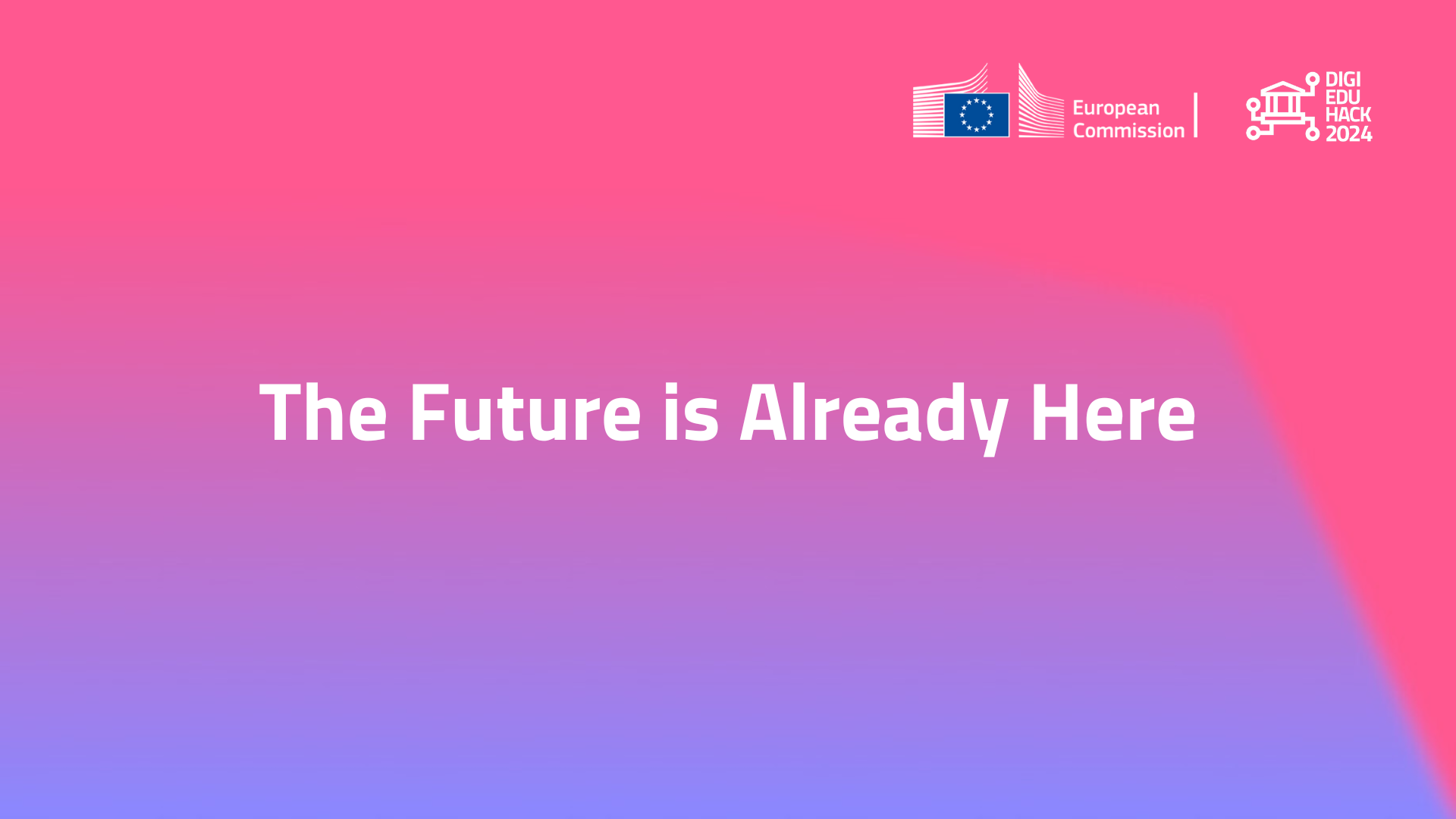The Future is Already Here
Picture this.
It’s the year 2125. You walk into a classroom: rows of desks, a chalkboard, a teacher talking while students take notes. It feels familiar—maybe even nostalgic. But does it reflect the world we’re preparing students for?
If we know the world will look very different in 100 years—or even in 10—why should education stay the same?
We are stepping into a time when digital skills are as essential as reading and writing once were. AI, data, and digital collaboration are no longer futuristic extras—they are becoming the foundation of how we live, work, and learn. Yet many classrooms still mirror a past that no longer serves us.
This is not a crisis, but a moment of opportunity. It’s time to rethink how we learn.
From chalkboards to challenge-cased classrooms
Now, imagine something different.
A classroom where learning is hands-on, collaborative, and deeply human. Where students team up to create AI tools for their communities, tackle online misinformation, or explore climate solutions through real-world simulations. The teacher becomes a facilitator, mentor, and fellow learner.
This is not a distant dream. It is already happening at DigiEduHack 2025!
Innovation in action
Take EdMap, the 2023 DigiEduHack winner that’s reshaping IT education by creating simulated work environments. Students learn how to tackle real-world projects as software engineers, project managers, and team leaders. It is not only about coding, but mastering problem-solving, collaboration, and the soft skills that employers need.
Or consider Signedge, the 2024 winner that gamifies Spanish sign language learning. While teaching digital literacy, the app creates inclusive communities where deaf and hearing learners connect through technology. Moreover, Signedge’s collaboration with local municipalities in Peru shows how digital education can bridge social divides.
Then there’s EduMind, 2024 winner, an AI-powered platform that helps educators create interactive, personalised materials that boost engagement while promoting responsible AI use. Their pilot with Colegio Alan Turing in Guadalajara, Mexico, demonstrates how these tools can be meaningfully integrated into the classroom.
These teams didn’t just theorise about the future of education—they built it.
And while some solutions are still in early development or pilot stages, they are already showing strong potential to shape real-world learning experiences in diverse settings—from Mexico to Finland, Hungary to Peru.
Why this matters
The challenges today’s learners face, such as climate change, AI ethics, disinformation, demand much more than memorised facts. They require creativity, critical thinking, and what we might call digital resilience: the ability to navigate, evaluate, and create in digital spaces responsibly.
This shift isn’t just about teaching how to code (though that’s part of it). It’s about teaching students how to think ethically about AI tools and data use, collaborate online across cultures, and navigate digital spaces safely and respectfully.
This approach aligns with the EU’s ethical guidelines for AI in education and UNESCO’s global recommendations, which both call for human-centred, inclusive, and equitable use of AI in education.
Join DigiEduHack 2025 with your hackathon
This year’s theme “Rethinking education in the age of digital skills” invites schools, universities, researchers, and companies to shape the future together — through a global series of hackathons. Whether your focus is AI integration, digital inclusion, climate education, or accessibility, DigiEduHack offers space to experiment, collaborate, and create lasting impact.
Past winners have gone on to secure accelerator placements, university partnerships, and real classroom implementation.
You could develop the next breakthrough in refugee education (like Learning Bridge Project’s multilingual platform), create immersive environmental learning experiences (like BONOLAB’s Digital Escape Room about climate change in the Baltic Sea), or build AI mentoring systems (like Dialogus, now being tested in schools).
Because the future isn’t something we wait for. It’s something we build.
The evidence is clear: the teams that have participated in DigiEduHack aren’t just dreaming about educational transformation—they’re making it happen.
Are you ready to join them? Register now to host a DigiEduHack 2025 event

